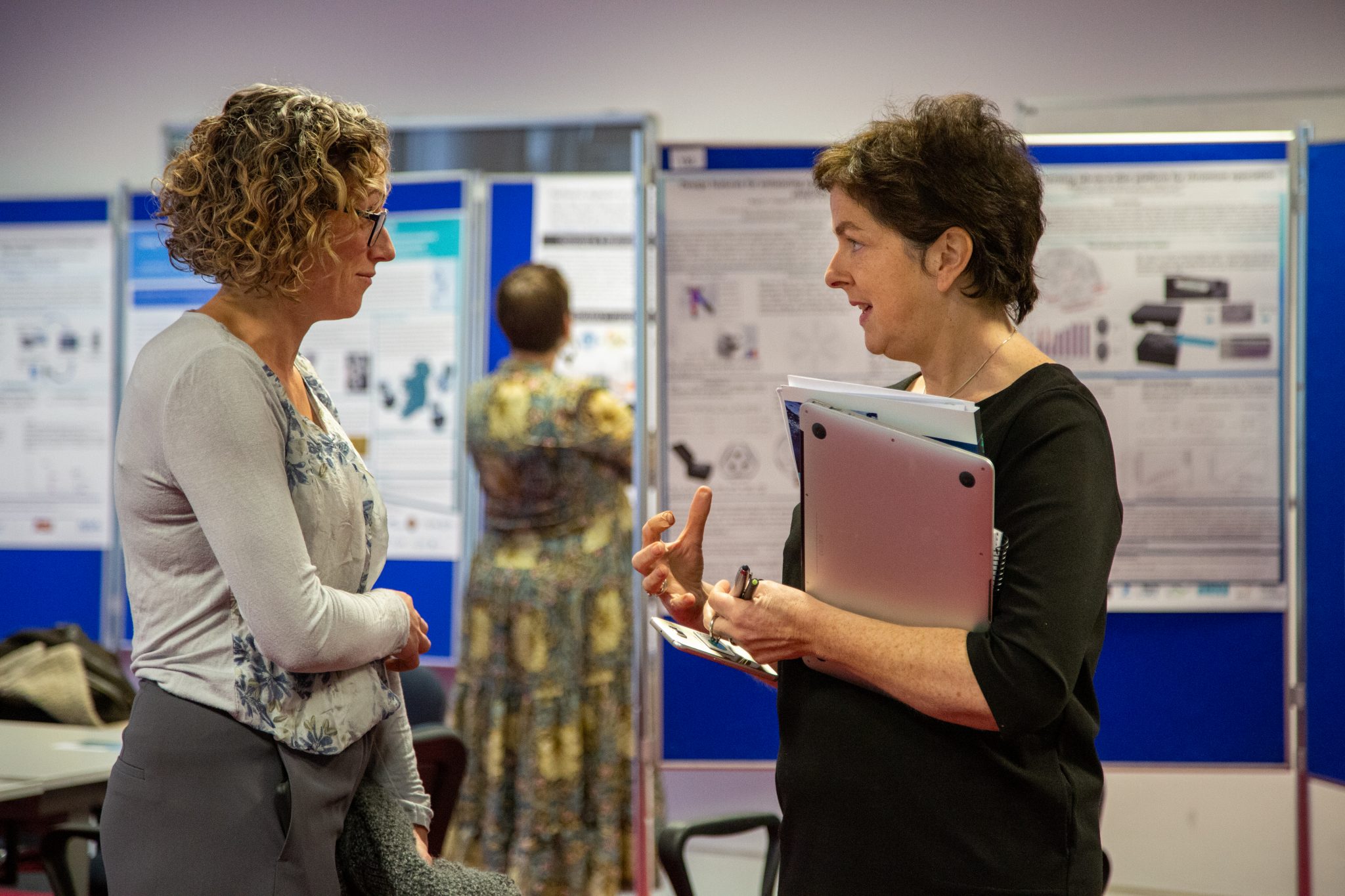When you set up an Institute to bring people together under a common theme – in this case the global need for clean and safe water – it’s encouraging to see that the model works.
That was apparent at the recent DCU Water Institute Research Showcase, at which a variety of researchers in the DCU Water Institute gave short presentations about their work to an audience that included industry partners and the Institute’s Advisory Board.
One of the presentations was from geomorphologist Dr Susan Hegarty from DCU School of History and Geography. Dr Hegarty recently joined the Institute and she is interested in exploring the effects of local geology on groundwater schemes. Her talk caught the ear of another DCU Water Institute researcher in the audience, Professor Lorna Fitzsimons, whose expertise lies in energy auditing of wastewater treatment and using biological resources in the circular economy. During her own talk, Professor Fitzsimons invited Dr Hegarty to have a chat later about collaborating.
This speaks to the spirit of bringing researchers and other stakeholders with different backgrounds together to work on the challenges of water, explains Professor Fiona Regan, who directs the DCU Water Institute.
“If there is one thing all humans have in common, it’s a need for clean, safe water, and that is the Institute is bringing researchers, industry, agencies and the public together to address water pollution and supply,” explained Professor Regan. “We need people with different perspectives and areas of expertise so we can really get to grips with the issues around water quality, supply, education and awareness.”
The range of work being undertaken through the Institute was evident at the showcase in DCU, and included not only the geology and modelling that can now dovetail together within the Institute, but also chemistry, ecology, public health, sensor development, environmental DNA detection, emerging pollutants of concern, data analysis, media, public engagement, campus sustainability measures, primary education and advanced manufacturing.
Listening to the talks, it was clear that no single research project or area of expertise can provide all the answers, and that strength lies in collaboration. The research is also highlighting the need for complex analysis – in the case of screening for pollutants in water and human exposure, for instance, the model is moving to detecting suites of molecules rather than single indicators, to give us a more realistic picture.
That complexity was a stand-out from the showcase for Kathy Grassick from Agilent, a global company that collaborate with DCU Water Institute on a project to measure pollutants called phthalates in the Irish environment. “
“The clear message from today for me is that it is not about looking at one chemical on its own, it is about Looking at the mixture,” says Grassick, who is Business Team Manager with Agilent Technologies Ireland. “Getting these kinds of insights and learning from the expertise of others in the DCU Water Institute is part of what makes the collaboration with them so powerful and mutually beneficial.”

